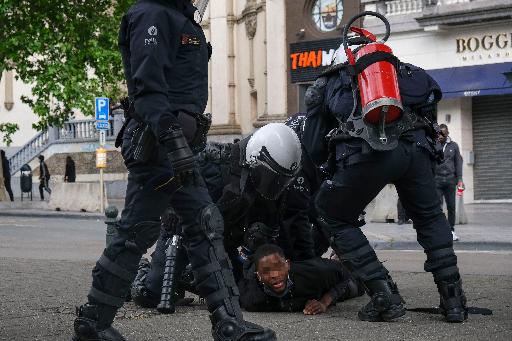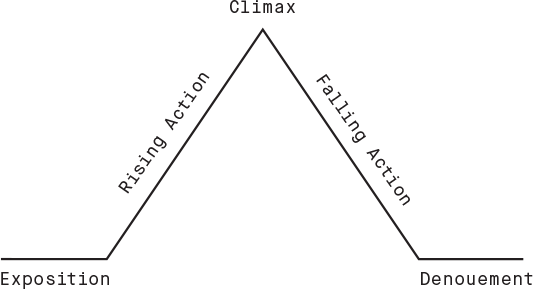[ad_1]
INTRODUCTION
This article is a hint about some of the past stories of abuses on asylum seekers by the Belgian police and high level of hatred exercised by the Belgian political party (Vlaams Belang) meaning Flemish Interest) against asylum seekers and foreigners in general. On several occasions Amnesty International (AI) has called on the Belgian Government to respect the human rights of asylum seekers and to put an end to the brutality and abuses faced by asylum seekers from the police force in “close center” (a detention center where rejected asylum seekers are kept for deportation) near airport. When these complaints were launched by Amnesty International, the Belgian Government always pledged to stop further police brutality and abuse of asylum seekers but nothing has been done about it. Until now the Belgian Government still forcefully deport asylum seekers coming to them for protection, back to their country of origin, which does not comply with the 1951 Geneva Convention.
Most people who seek asylum in industrialized countries are considered as economic migrants, someone who voluntarily leaves their own country of origin aiming for a better life another country (definition by Wigan Council, UK). Perhaps they are fleeing from dictatorial and corrupt regimes such as that of my country, Cameroon, which tends to affect the citizens of that country economically. In my own words I call it “economic persecution”. Fleeing from other types of persecution in my opinion must not be in conformity with the definitions of the United Nations pertaining to refugees and asylum seekers. These people should be accepted and protected in any country they seek for asylum and find refuge than to be brutalized and abused in any form. In this article, citations are given to prove the police brutality, hatred and abuse of asylum seekers and refugees as stated in the above heading.
WHO IS A REFUGEE?
Under International Law, a refugee is a person who is outside his/her country of nationality or habitual resident; has a well founded fear of persecution(s) of his/her race, religion, nationality, membership in a particular social group of political opinion; and is unable to return or unwilling to avail himself of the protection of the country, or to return there, for the fear of persecution (Wikipedia-open content encyclopedia).
WHO IS AN ASYLUM SEEKER?
In 2004 the United Nations High Commission for Refugees (UNHCR) defines an asylum seeker is a person who flees his own country and seek sanctuary in another state, he applies for ‘asylum’-the right to be recognized as a bona fide refugee and receive legal protection and material assistance.
For many asylum seekers, for example, the Government or institutions in the country of origin do not necessarily impose persecution. Some may face violence at the hands of mafia networks, armed or dominant majority groups in connection with factors that are not directly political, such as ethnicity. Others may be threatened for having a lifestyle that involves a socially unacceptable choice of spouse, sexual orientation etc. Some people are threatened and persecuted without fully meeting the demands of the 1951 United Nations Convention relating to the status of refugees. Poverty, while a commonly factor “pushing” migration is difficult to define. Many undocumented aliens and unauthorized residents identify varying thresholds of hardship at which they where motivated to migrate. This generic term therefore covers a wider range of facts (Martiniello, 2004).
Martiniello’s point should be fast taken into consideration because, normally where there is poverty and famine, people as well as livestock are forced to leave their niche for survival, which sometimes triggers exodus. I hold his arguments because they may help to redefine the concept of refugee better than as stated by International Law. Failure to revisit these concepts under the principles and guidelines provided by Martiniello, many people will face double persecutions both in their countries of origin and in the host countries. There are many other types of persecutions that can qualify a person as a refugee, which is not mentioned in the definition of refugee itself and I think this should be addressed by the United Nations for a broader definition. For example, imagine someone in a less developed country losses his business ventures accidentally by fire, and in a highly corrupted country with poor insurance policies and slow judiciary procedures, it takes several years to get compensation from the insurance company. Meanwhile this person and the entire family depend solely on this business. In a country with a poor economic system and little or no hope of finding another job, given the opportunity to leave his country to another country for a better life, he will not hesitate.
POLICE BRUTALITIES AND ABUSES OF REFUGEES AND ASYLUM SEEKERS
Amnesty International 1999 report criticized Belgium for its maltreatment of asylum seekers inside the “close centers”. For example, for a second time, Belgium was included among the states named in Amnesty’s report. Of major concern in Belgium, the document exposes police brutality and restrictive asylum policies. One of the cases highlighted as stated by Tyler in 1999 was that of Hovhannes Karapetyan, an American refugee. After an unsuccessful attempt to deport him, he was return to Steenokkerzeel “close center” where guards assaulted him, breaking his arm causing him to lose consciousness. He was then put into solitary confinement in this condition. When he asked to see a doctor, the guards assaulted him once more. He was only taken to the hospital the next day.
On September 22, 11 gendarmes took a young Nigerian woman called Semira Adamu bound in handcuffs, to a plane at Brussels National airport to be deported. When she started shouting and trying to resist deportation, two of the officers pressed a cushion over her face. She fell unconscious and died later that evening. According to doctors, she succumbed to brain hemorrhage resulting from a contusion. The tragic fate of Semira Adamu shook the Belgian population. More than 5,000 people gathered on September 28 outside the cathedral of St. Michael in Brussels during the memorial service for the young woman. This led to the resignation of the socialist party interior minister Louis Tobbak the next day, admitting political responsibility for the violent death of the 20 year old asylum seeker (Nees, 1998).
According to the Concluding Observation Report No. 6, of the Human Rights Committee in Belgium, the committee takes note of new instructions relating to the methods and techniques under which deportations are carried out. As a follow up in Report No. 13, the committee expressed grave concern over the widespread police brutality against suspects in custody. The committee regrets the lack of transparency in conducting investigations on the part of the police authorities and difficulty in obtaining access to information.
Concordant to the Institute of Racial Relations in London, Amnesty International has expressed dismay over reports of police brutality in Belgium, often accompanied by acts of racial discrimination. Amnesty International calls for people in custody to have access to a lawyer and a medical doctor. Excessive force has been used during deportation and rejected asylum seekers have been confined for too long in transit sections of the Brussels National airport. These continuous allegations made by Amnesty International about the Belgian police brutality to refugees and asylum seekers, now qualifies the international community to openly criticize the Belgian government for doing too little in stopping these abuses, which still goes on in detention centers. One is forced to ponder for how long shall we wait for another Semira Adamu to happen before something needs be done to put an end to these brutality, hatred and prejudice?
HATRED FOR REFUGEES AND ASYLUM SEEKERS
The hatred of the radical Flemish political party (Vlaams Belang) is now noticeable to every foreigner in Belgium. This very political party was formally known as Vlaams Blok, and after a controversial racist statement made by the former president, Filip Dewinter, the party was banned and fined by the Supreme Court to pay 36,000 euros. To save its finance, they then emerged with another name Vlaams Belang. They don’t like the presence of asylum seekers and refugees in their country.
In Belgium, the issue of political parties, which resort to racist or xenophobic propaganda, is of special concern to European Commission against Racism and Intolerance (ECRI). Much remains to be done to ensure that foreigners and persons of immigrant backgrounds enjoy genuinely equal opportunities in employment. The increase in manifestation of anti-Semitism and Islamophobia calls for concerted efforts of Belgian society as a whole against these phenomena (Council of Europe, 2004).
The president of Human Right and Peace Campaign (HURPEC) wrote that the 1951 Geneva Convention clearly opposes the return and forced deportation of any refugee to that country where he/she fears persecution either he/she is living legally or illegally. But the Belgian Government is forcefully deporting refugees, giving them extreme torture and punishment, which is a violation to the Geneva Convention (Karki, 2002).
In my view, the torture given to asylum seekers in detention by the police is not only an abuse of human right, but hatred against human race no matter which race it might be. The deportation of refugees and asylum seekers is not an idea but upholding the 1951 Geneva Convention by regularizing all rejected asylum seekers, refugees and enabling them to work and pay their taxes without any discrimination. This can be supported by the statement made by the British Home Secretary, Charles Clark saying that saying that there may be a case permitting some failed asylum seekers to work in the UK, during a debate with BBC Two’s Newsnight on April 26, 2005. He was responding to a suggestion from the audience that immigrants will better integrate into the British society if they paid tax and National Insurance. In 2003, Belgium was one of the selected industrialized counties with the lowest number of asylum applications received (16,900). The applicants came from the Democratic Republic of Congo, Russian Federation, Serbia-Montenegro, Iran and Cameroon (UNHCR, 2004). Believing this low asylum application figures, there is just no need for anti asylum policies to be introduced in the parliament as wanted by Vlaams Belang in order to push all asylum seekers and refugees to limbo.
It is hard to imagine that a councilor of Vlaams Belang Sint Gilles–Waas near the city of Antwerp was arrested in connection with the shooting of two men in a café in Sint Gilles Pauwels. One of the victims died and the other was seriously wounded. (IRR News, 2004). This shows how barbaric some of their members can be. The European Roma Rights Center (ERRC) sent a letter to the Belgian Prime Minister Guy Verhofstadt to express concerns at reports that Belgium plans to expels Slovak Romani asylum seekers. The ERRC called Prime Minister Verhofstadt’s attention to the fact that the collective expulsion of aliens is in contravention of Article 4, protocol 4 of the European Convention on Human Rights (ERRC, 2000).
We can see that sometimes even the government can organize widespread expulsion of refugees in a systematic order without the knowledge of NGOs who fight for the rights and protection of these refugees and asylum seekers. This is just an aide memoire of what refugees and asylum seekers are going through in Belgium today. Deporting a person, who has successfully fled persecution from his or her country, back to the country of origin, is like burying that person alive who is, to my view, tantamount to crime against humanity or whatever crime you might link it to.
CONCLUSION
There is still racism, discrimination and hatred of asylum seekers, refugees and foreigners in Belgium. The Belgian people and politicians should recall that their former king Badouin, son of Leopold III, joined his father in exile in 1945 in Switzerland as a refugee, while others where also refugees and internally displaced in their own country during the Second World War German (Nazi) invasion of Belgium. The military was not able to liberate their country from the German occupation. All thanks to the British and U.S soldiers for shedding their blood for the Belgian people. I urge the Vlaams Belang chairman, Frank Vanhecke with his radical views on refugees and asylum seekers to reflect history, modernize their ways of thinking, and accept the facts that things and time has changed. Belgium needs refugees and asylum seekers not only to work in their apple farms, but to be fully integrated in the society and given the permission to work if qualified for the job such as doctors, engineers, soldiers etc, as they will all abide to the laws that governs the Belgian soil. Refugees and asylum seekers can be of great importance to the state and it’s economy. Fighting against police brutality and protecting all refugees, asylum seekers and other foreigners from abuses and racism is yet to be seen in Belgian institutions before there can be equal opportunities for everyone.
It is important to note that the policies of Vlaams Belang (Flemish Interest) that preach hatred against refugees and asylum seekers, also frighten other foreigners who live and work legally in Belgium and worse of all tarnish the reputation of the state as racist. In my opinion, if Vlaams Belang doesn’t stop their discriminative and hatred policies on asylum seekers, refugees and foreigners, the international community should consider them as a political and terrorist organization for example Irish Republican Army (IRA) of Northern Ireland, ETA of Spain and, Hizbolla of Syria etc. Because they are trying to use democracy to kill human rights that has long been established and achieved under hard struggle.
REFERENCES
Charles Clark (statement), BBC Newsnight special debate on home affairs. April 26, 2005. http://news.bbc.co.uk/1/hi/uk_politics/vote_2005/frontpage/4488153.stm
Council of Europe, 2004 Five New Reports on Racism, Human Rights, European Commission Against Racism And Intolerance, 27 January 2004
European Roma Rights Centre, 2004. Planned Expulsion of Roma from Belgium (ERRC press Release 2004). Publication-Advocacy Letters and Press Releases http://www.errc.org/cikk.php?cikk=223&archiv=1
Karki, Milan, 2002. Appeal: Belgian Government’s Brutality Over Nepalese Refugees, 16th December 2002. http://www.hrea.org/lists/refugee-rights/markup/msg00222.html
Martiniello Marco, 2004 Belgium undocumented held lesson for EU, Migration Information Source, 1st February 2004. http://migrationinformation.org/feature/display.cfm?ID=95
Nees, Verena, 1998: The death of Semira Adamu and Deportation Policy in Europe. Published by (ICFI) 6th October 1998. [http://www.wsws.org/news/1998/oct1998/blg-o06.shtml]
Race and Immigration Issues in Belgium, 2004.
[http://www.goacom.com/overseas-digest/ImAsy&Race] (Main source, Institute of Race Relations, London)
Refugees by Numbers, 2004 Edition. United Nation Refugee Agency (UNHCR) Page 10-11.
Some Stories. 2004 Independent Race And Refugee News Network. May 2004 http://www.irr.org.uk/2004/may
Tyler, Richard, 1999 Refugee Protest Condition in Belgium “close centers” for asylum seekers. Published by International Committee of the Fourth International (ICFI), 1st September 1999. http://www.wsws.org/articles/1999/sep1999/belg-s01.shtml
University Of Minnesota, 1998 Concluding Observation of the Human Right Committee, Belgium, Human Right Library, 19 November 1998.
Wigan Council, UK, Asylum….Questions & Answers [http://www.wiganmbc.gov.uk/pub/council/asylum/asylumseekers.htm]
Wikipedia, Bamboo Web Dictionary, Open Content Encyclopedia http://www.bambooweb.com/article/r/e/refugee.html
[ad_2]




